Zachery Armijo
From the Streets to the Stars – Stories That Resonate, Worlds That Inspire.
About Author

I am Zachery Armijo, though many know me as Caz, a storyteller shaped by a life few could imagine and even fewer would survive. My early years were chaotic—defined by instability, loss, and the constant struggle to find my place in a world that seemed indifferent to my existence. But it was within that chaos that I discovered the transformative power of words, a discovery that became my compass, guiding me toward a life of creativity and purpose.I grew up in Salt Lake City, Utah, and my childhood was anything but ordinary. While most kids my age were learning to read, I was navigating a turbulent home life marked by poverty and the absence of stability. My mom, a woman of immense strength and profound vulnerability, tried her best to keep us together under the weight of addiction and systemic challenges. By the time I was 10, I had grown up fast, taking on responsibilities far beyond my years. I wasn’t just a kid; I was a caretaker for my siblings and a protector in a household that always felt one step away from collapse.But nothing could prepare me for what came next. A series of events left me homeless, wandering the streets of Salt Lake City on my own. Nights were spent huddled by warm vents near brick buildings, bathed in the glow of streetlights, shadows stretching across a city that seemed to have forgotten me. Hunger and cold were constant companions, but so were resilience and determination. The streets taught me lessons no classroom ever could—lessons about survival, trust, and the duality of human nature: its capacity for both cruelty and kindness.During one of my lowest points, while confined in juvenile detention, I stumbled upon my first love: reading. Out of boredom, I picked up a comic book—Calvin and Hobbes—then Garfield and The Far Side. At first, the words were a struggle, symbols that seemed to taunt me after years of feeling locked out of the world of reading. But slowly, those stories unfolded, pulling me into worlds far removed from my own. From comics, I moved to novels like Charlotte’s Web, The Hobbit, and the Dragonlance series. Each story was a lifeline, proof that there was more to life than the struggles I knew.It wasn’t just the stories themselves that captivated me—it was the realization that words had power. Words could build worlds, forge connections, and heal wounds I thought were too deep to touch. Inspired by the books that gave me hope, I started to write. At first, my words came out in scraps—thoughts scribbled on scraps of paper or the backs of receipts. My writing was raw, unpolished, and full of typos, but it was real. It was my way of making sense of the chaos around me, of finding order in the disorder.As I wrote, I realized my story had power—not just for me, but for others. There were people out there who felt unseen, unheard, and forgotten, just like I had. If my words could resonate with even one person, if they could offer a moment of solace or a flicker of hope, then my pain had purpose. That realization became the foundation of everything I do, driving me to share my story with the world.Today, my writing is a testament to the resilience of the human spirit. I blend raw memoir with the imaginative worlds of science fiction and cyberpunk, exploring themes of identity, systemic oppression, and the search for meaning in a fractured world. My stories aren’t just tales; they’re reflections of the struggles and triumphs of those who are too often overlooked.One of my most personal works, Echoes of a Homeless Youth: The Sketches of a Street Rat, is a sketchbook of my life. It’s unpolished, fragmented, and deeply honest, capturing moments of survival, resilience, and small, profound beauty. Through its pages, I invite readers to walk the streets of Salt Lake City as I did, to experience the lows and find the small glimmers of hope that kept me going.But my story isn’t just about my survival. It’s about giving back. Through my writing, I aim to shine a light on homelessness, poverty, and systemic injustice. I want to advocate for those still fighting to be seen and heard. I also want to help others find their voices, because I believe everyone has a story worth telling.Outside of my writing, I am “Uncle Zac” to my niece and nephews—a steady presence in their lives, someone they can rely on in a world that often feels chaotic. I pour as much passion into being there for them as I do into my work, proving that resilience and kindness can coexist even in the face of adversity.When I look back, I think about the moments that shaped me—the glow of streetlights on an empty city street, the warmth of a stranger’s kindness, the first time I opened a book and felt its power. These memories, both painful and beautiful, are the foundation of who I am. They remind me of where I came from and inspire me to keep going—not just for myself, but for everyone who has ever felt like they didn’t belong.My journey from the streets to storytelling is a testament to transformation. It proves that even in the face of overwhelming odds, it’s possible to find light. Through my words, I hope to show others that there is beauty in brokenness and that change is always within reach. My story is far from over, and I plan to keep writing—to keep proving that even the most fractured lives can create something extraordinary.
About My Brand
A Journey Forged in Struggle
I was born and raised in Salt Lake City, Utah, in a low-income family where addiction, instability, and poverty were constant realities. Life often felt uncertain, and survival was a daily battle. These struggles didn’t just shape my childhood—they became the foundation for how I see the world and the stories I tell today.My adolescence was marked by homelessness, living as a street kid in a city that felt cold, both literally and figuratively. Nights were spent searching for warmth by building vents or in empty spaces that offered momentary refuge. Loneliness became a familiar companion, and the search for belonging felt endless. Every day was a fight—not just for survival but for a sense of identity and purpose in a world that seemed determined to strip them away.Yet, in the middle of this chaos, I found an unexpected lifeline: books. Stories like Chicken Soup for the Soul and A Child Called “It” were more than just pages filled with words. They were survival guides, offering hope, connection, and a reminder that I wasn’t alone in my struggles. These stories showed me that even in the darkest circumstances, there was still beauty to be found, still a reason to keep going.Books didn’t just entertain me; they healed me. They became my companions during nights when the world felt unbearably harsh, teaching me that stories have the power to inspire, transform, and connect us to something greater. It was through these stories that I began to see the world not just as a place of hardship but as a place where resilience could flourish and where even broken pieces could come together to create something meaningful.My journey isn’t just one of struggle—it’s one of resilience and the profound power of storytelling to heal, inspire, and remind us that even in our darkest moments, we are never truly alone.
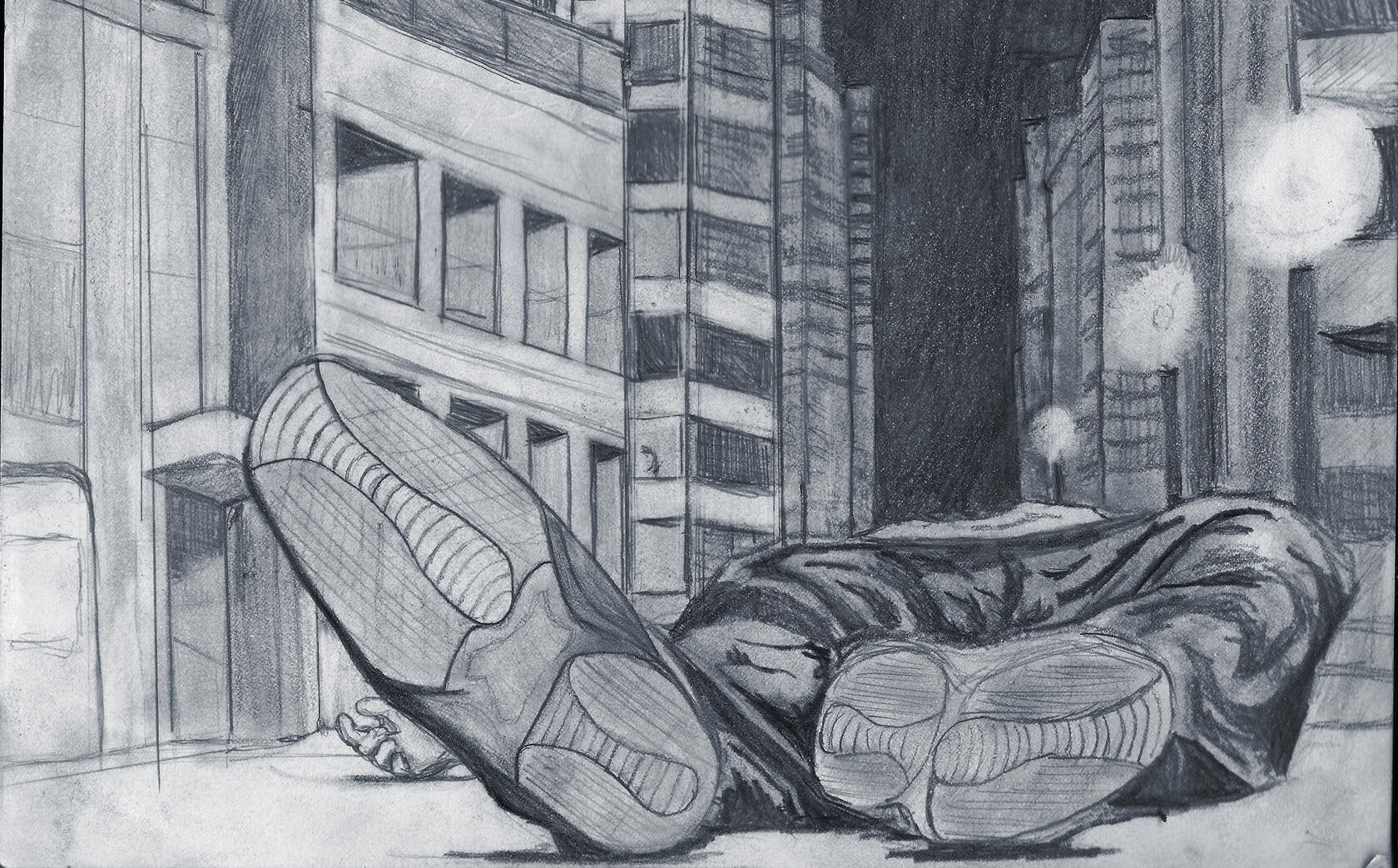
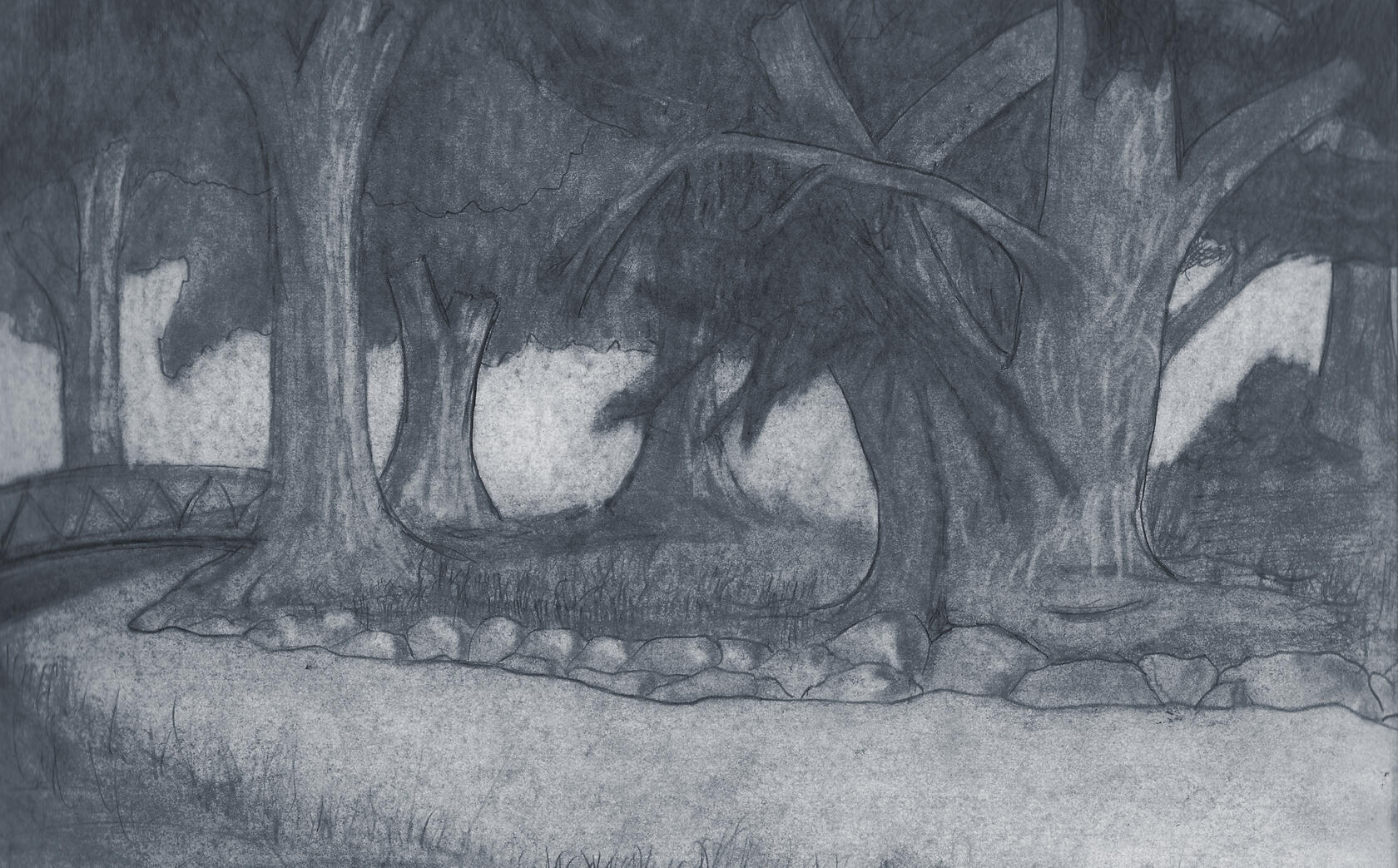
Finding My Voice
My path to writing began during one of the most challenging periods of my life. I was a young teenager, navigating the loneliness and uncertainty of juvenile detention, when I first discovered the power of words. At a time when life felt like chaos—disjointed and unforgiving—writing became a way to process my emotions and make sense of my experiences.Back then, I wasn’t a writer. I didn’t even see myself as one. Dyslexia had made reading and writing a struggle for most of my life. While other kids flipped through books effortlessly, I wrestled with words that seemed to slip through my fingers. It wasn’t until I was about 12 years old that I finally started to read with some confidence. Even then, it felt like I was years behind everyone else.But in those quiet moments in detention, something shifted. With nothing but time on my hands, I picked up whatever scraps of literature I could find. Slowly, I started to see stories not just as an escape but as a tool—a way to understand the world and my place in it. Each sentence I read, each thought I scribbled down, became a step toward reclaiming my identity.Writing wasn’t just a hobby or a way to pass the time; it became my mission. I wanted to give voice to the voiceless, to shed light on the struggles of those society often overlooks. It wasn’t about creating polished, perfect prose—it was about being raw and real, capturing the chaos of life while finding moments of beauty within it.Earning my GED and later pursuing college wasn’t easy. Traditional education had always felt like a battle I was destined to lose, but writing gave me a purpose, a reason to push through the challenges. It became my anchor, the one thing I could hold onto as I worked to transform my pain into something meaningful.Through storytelling, I’ve learned that words have the power to connect, to heal, and to inspire. My journey has taught me that even when life feels impossible, even when the odds are stacked against you, finding your voice can be a way to survive—and eventually, to thrive.
Themes of Trauma, Resilience, and Systemic Injustice
My work often dives into the harsh realities many people prefer to avoid—systemic oppression, trauma, and the high cost of survival. These aren’t just abstract ideas to me; they’re lived experiences, the truths I’ve carried since my earliest memories. But my stories aren’t simply about the pain or the darkness. They’re about resilience—the quiet, powerful ability to rise, adapt, and find meaning even when the world feels stacked against you.One of my most deeply personal works, Echoes of a Homeless Youth: The Sketches of a Street Rat (coming soon), reflects this ethos in its rawest form. It’s more than a memoir; it’s an unfiltered look at life on the streets and a tribute to the human spirit’s capacity to endure. In its pages, I revisit my time as a homeless teenager, where survival wasn’t just about finding food or shelter but about navigating a world that seemed determined to erase me.Through Echoes, I share not only the hardships—the freezing nights spent on sidewalks, the loneliness that felt unrelenting—but also the moments of light. There were acts of kindness, fleeting but significant, that reminded me humanity wasn’t entirely absent. Those moments, and the stories I found in books, helped keep me grounded. They offered me hope when there seemed to be none.Writing this book wasn’t easy. It meant reopening wounds I had long tried to forget. But it was a necessary process—a chance to confront my past and, more importantly, to show others they are not alone in their struggles. I want Echoes to be more than a story; I want it to be a lifeline, much like A Child Called “It” was for me when I first read it.Through all my work, whether memoir or fiction, I aim to explore the complexities of systemic injustice and the ways it scars individuals and communities. Yet I also seek to highlight resilience—the ways people fight back, adapt, and find their voices despite unimaginable odds. My stories may delve into dark, uncomfortable topics, but they also celebrate hope, humanity, and the possibility of change.This isn’t just storytelling for me; it’s a way to connect with others, to reflect the struggles of those who are often unseen, and to remind us all that even in the darkest moments, there is still a way forward. It’s about confronting the systems that harm us and finding the courage to rise above them—not just in fiction, but in life itself.
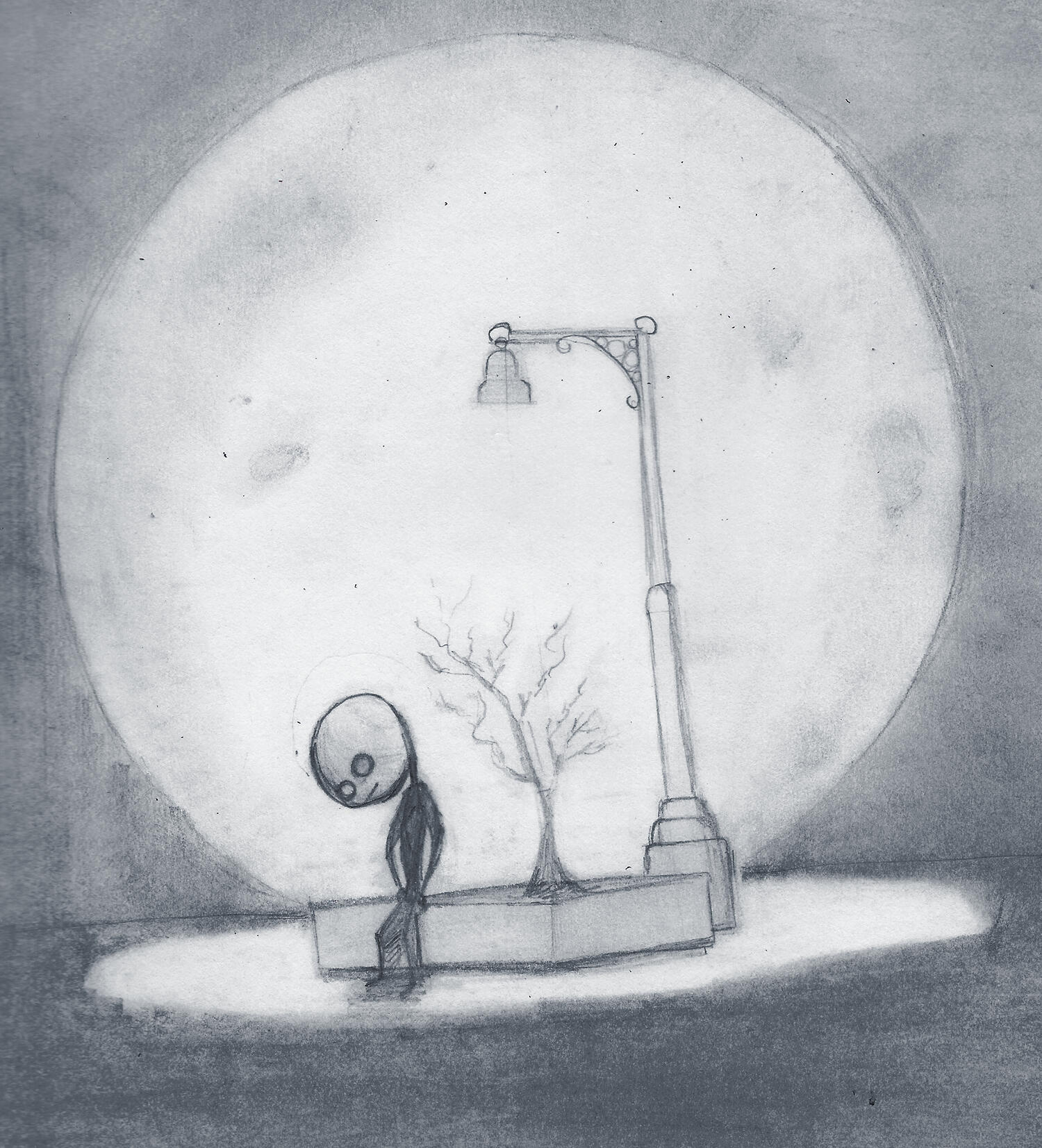
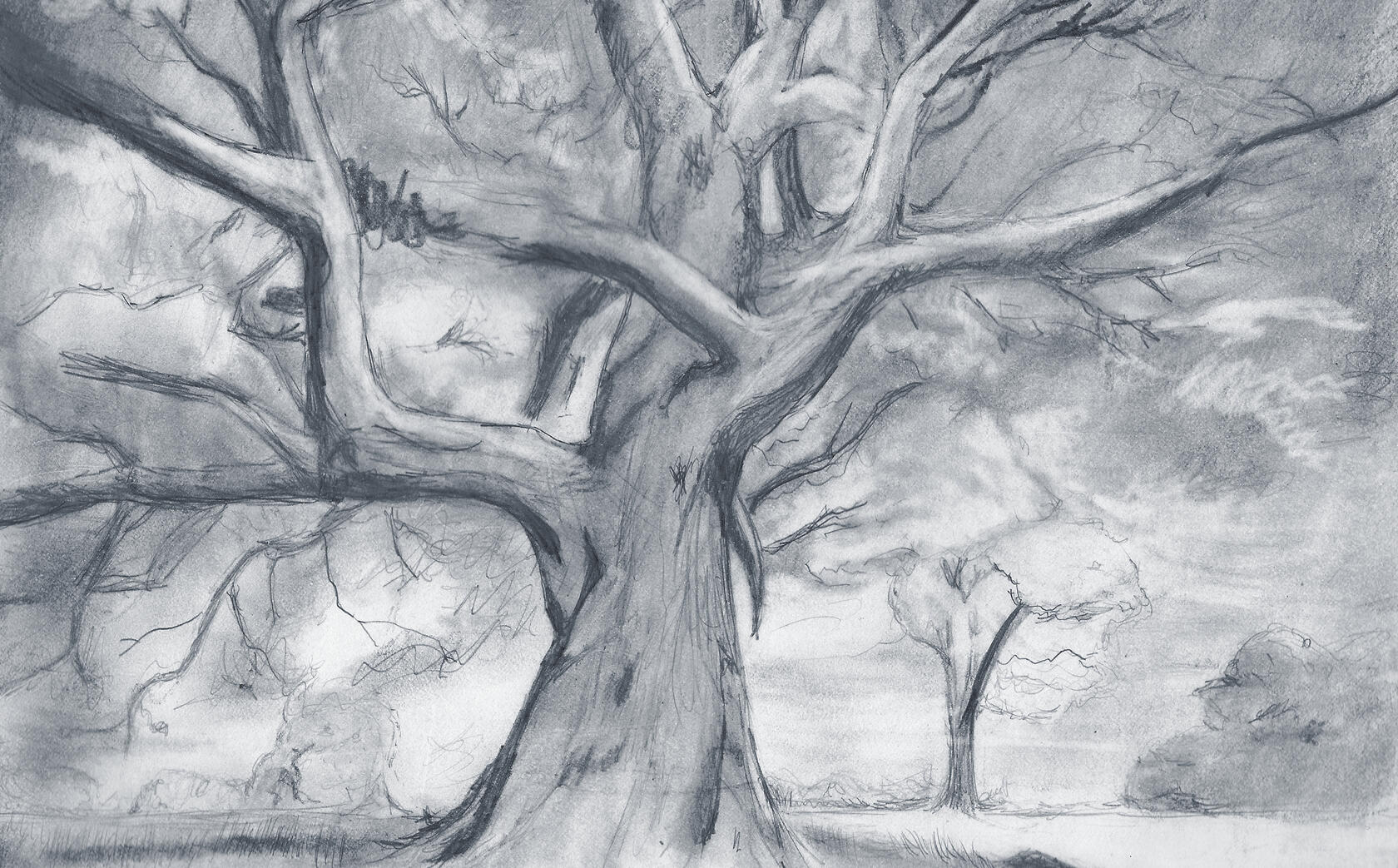
Philosophy Meets Storytelling
At the heart of my writing lies a deep connection to existential philosophy—a lens through which I’ve learned to make sense of the world and my place in it. Grappling with questions of identity, freedom, and the meaning of life has always been an intrinsic part of my journey, both personally and as a storyteller. These themes shape much of my work, offering readers an invitation to explore the complexities of existence alongside my characters.Through stories like Fading Chains, I bring these ideas to life in ways that are raw and relatable. Caz, the protagonist, is more than just a character navigating a dystopian world; he’s a reflection of our collective search for meaning in a universe that often feels indifferent. His journey is one of self-discovery, resilience, and ultimately questioning the constructs of morality, justice, and identity.My writing doesn’t aim to provide easy answers or tidy resolutions. Life is messy and complicated, and I believe stories should reflect that. Instead, I leave room for readers to engage with the material on their own terms, to find their own interpretations, and to wrestle with the questions that emerge. For me, the act of storytelling isn’t about dictating truths—it’s about creating a space for exploration, connection, and reflection.Existentialism resonates deeply with my lived experiences. Growing up on the streets, facing the void of uncertainty, and searching for meaning in a chaotic world shaped my understanding of freedom and identity. Writing became the bridge between those struggles and the larger questions of existence. It’s through these stories that I challenge readers to confront the same questions I’ve wrestled with: Who are we? What drives us? What does freedom truly mean in a world that seeks to confine us?The questions I raise are as important as the journeys my characters undertake. Whether it’s Caz grappling with the psychological weight of his past or the reflections of a homeless youth searching for purpose, my work is an ongoing dialogue—one that invites readers to think deeply about their own lives and the world around them.Ultimately, my goal is to create stories that go beyond entertainment. I want them to challenge conventional thinking, spark conversations, and resonate on a profoundly human level. Through philosophy-infused storytelling, I hope to inspire readers to embrace the uncertainties of life, to question the systems that shape us, and to find meaning in the moments of connection and self-discovery that define our existence.
A Commitment to Authenticity
What sets my writing apart is my unwavering commitment to authenticity. I don’t write to offer sanitized or neatly packaged versions of life. Instead, I dive headfirst into the raw, unfiltered realities of human experience. Whether I’m exploring the harrowing struggles of homelessness, the enduring scars of trauma, or the fleeting, fragile moments of hope that keep people moving forward, my work is grounded in truth—lived and deeply felt.For me, authenticity isn’t just a stylistic choice; it’s a responsibility. Writing about topics like systemic oppression, poverty, and resilience requires honesty, even when the truths are uncomfortable or difficult to confront. My stories resonate because they refuse to shy away from the hard edges of life. They reflect the chaos, the heartbreak, and the beauty that emerge when we confront our realities head-on.I’ve lived the experiences I write about—nights spent searching for warmth on the streets, moments of despair that felt insurmountable, and the rare, unexpected kindnesses that reminded me humanity wasn’t entirely absent. These moments shaped me, and they shape my work. My writing is a reflection of that journey, a way to give voice to struggles that are often ignored and to shine a light on the resilience of those who endure.I’m not afraid to take risks or challenge societal norms through my stories. I tackle subjects that many might prefer to avoid because I believe in the transformative power of storytelling. By sparking conversations and inspiring reflection, my work aims to foster deeper understanding and compassion for the world we share.At its core, my commitment to authenticity is about creating connections—between writer and reader, between experience and empathy. I write to remind people that they’re not alone, that their struggles matter, and that, even in the darkest moments, there is hope to be found and strength to be reclaimed.


Looking Ahead
As I move forward with my writing career, my vision is clear: to create stories that resonate deeply and to use the success of my work as a springboard for even greater creative endeavors. My memoirs and fiction have laid the foundation, but this is only the beginning. My ultimate goal is to fund and develop a diverse range of projects under my various pen names—each with its own voice and purpose.For children, writing as Uncle Zac, I aim to create whimsical, educational stories that inspire curiosity and joy, sparking the imaginations of young readers. For teenagers and young adults, under ZT Arms, my focus is on crafting tales of adventure, growth, and self-discovery that speak to their unique challenges and aspirations. These works, alongside my adult memoirs and fiction as Zachery Armijo, reflect my belief that storytelling can inspire and connect people of all ages.Right now, my focus is on building my brand as Zachery Armijo—a voice for the voiceless and a chronicler of stories that need to be told. I’m committed to sharing raw, unflinching narratives that shed light on resilience, systemic injustice, and the power of hope. Each story I write is a step toward not only personal growth but also a larger mission: to bring attention to the overlooked and underserved.Giving back is an essential part of this journey. I want to use my platform to uplift others who, like me, have faced hardship. I plan to write op-eds and articles that spotlight organizations like Volunteers of America, which helped me through some of my most difficult times. By amplifying the stories of these organizations and the people they serve, I hope to inspire change, foster understanding, and show that no one’s story is too small to matter.Looking ahead, my writing is about more than just telling my own story—it’s about building a legacy of compassion, connection, and creativity. Through my words, I aim to inspire others to find their own voices, embrace their truths, and carry forward the transformative power of storytelling.

My books
Welcome to the heart of my storytelling journey, where the threads of reality and fiction intertwine to create vivid, unforgettable narratives. Here, you’ll find a showcase of the books that reflect my lived experiences and my imagination—each a window into the worlds I’ve built and the truths I’ve uncovered.At the center of this collection is Fading Chains: A Punk’s Once Upon a Broken Time, a fictional memoir that explores themes of systemic oppression, resilience, and the quest for identity. Drawing from the gritty reality of long-term imprisonment, this story offers a raw and introspective look at what it means to fight for freedom, both external and internal.Accompanying this is Echoes of a Homeless Youth: The Sketches of a Street Rat, my deeply personal memoir. It’s a patchwork of memories and reflections, capturing the chaos of growing up on the streets and the solace I found in stories and self-expression. This book isn’t just about survival—it’s about finding hope in the darkest corners and learning to see beauty in the struggle.As an author, I strive to create works that resonate on a profound level. My stories blend the raw truths of life with elements of introspection, imagination, and hope. Whether you’re drawn to gritty realism, philosophical musings, or the fight for redemption, there’s something here for every reader looking to explore the complexities of the human experience.Thank you for joining me on this journey. Dive into the pages, and discover stories that are as much about survival as they are about transformation.
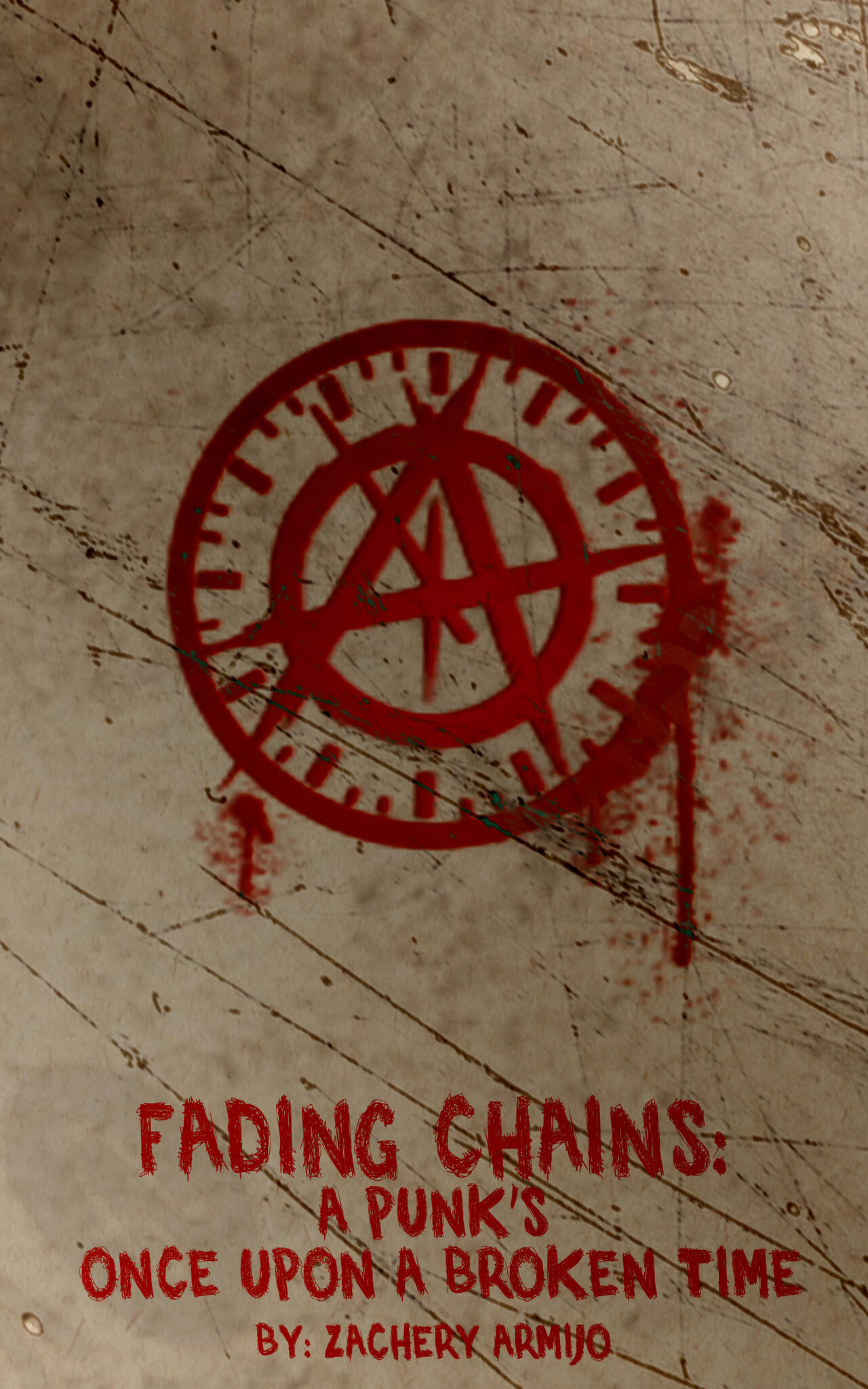
Fading Chains
A Punk’s Once Upon a Broken Time
What happens when freedom feels heavier than chains?Fading Chains: A Punk’s Once Upon a Broken Time explores the haunting aftermath of confinement. Follow Caz Martinez as he steps into a world that has moved on without him, navigating the stark contrast between a future brimming with technology and a past that still clings to his mind. Raw, introspective, and deeply human, this is a story about finding meaning in the chaos, questioning the nature of freedom, and piecing together an identity fractured by time.Step into the light, where the shadows never truly fade.
Echoes of a Homeless Youth: The Sketches of a Street Rat
Coming Soon!
What if survival isn’t just about enduring but about finding meaning in the chaos?Echoes of a Homeless Youth: The Sketches of a Street Rat is a raw, unfiltered journey into the life of Zachery Armijo—a young boy navigating the harsh realities of homelessness. Through fragmented memories, heartfelt sketches, and poignant reflections, this memoir captures the grit and resilience of a street kid searching for belonging. Zachery’s words pull no punches, exposing the pain, the struggle, and the unexpected beauty found in moments of connection.This is not just a story of survival; it’s a tribute to the power of hope, community, and the indomitable human spirit. Dive into a world that will break your heart and remind you of the strength it takes to keep moving forward.
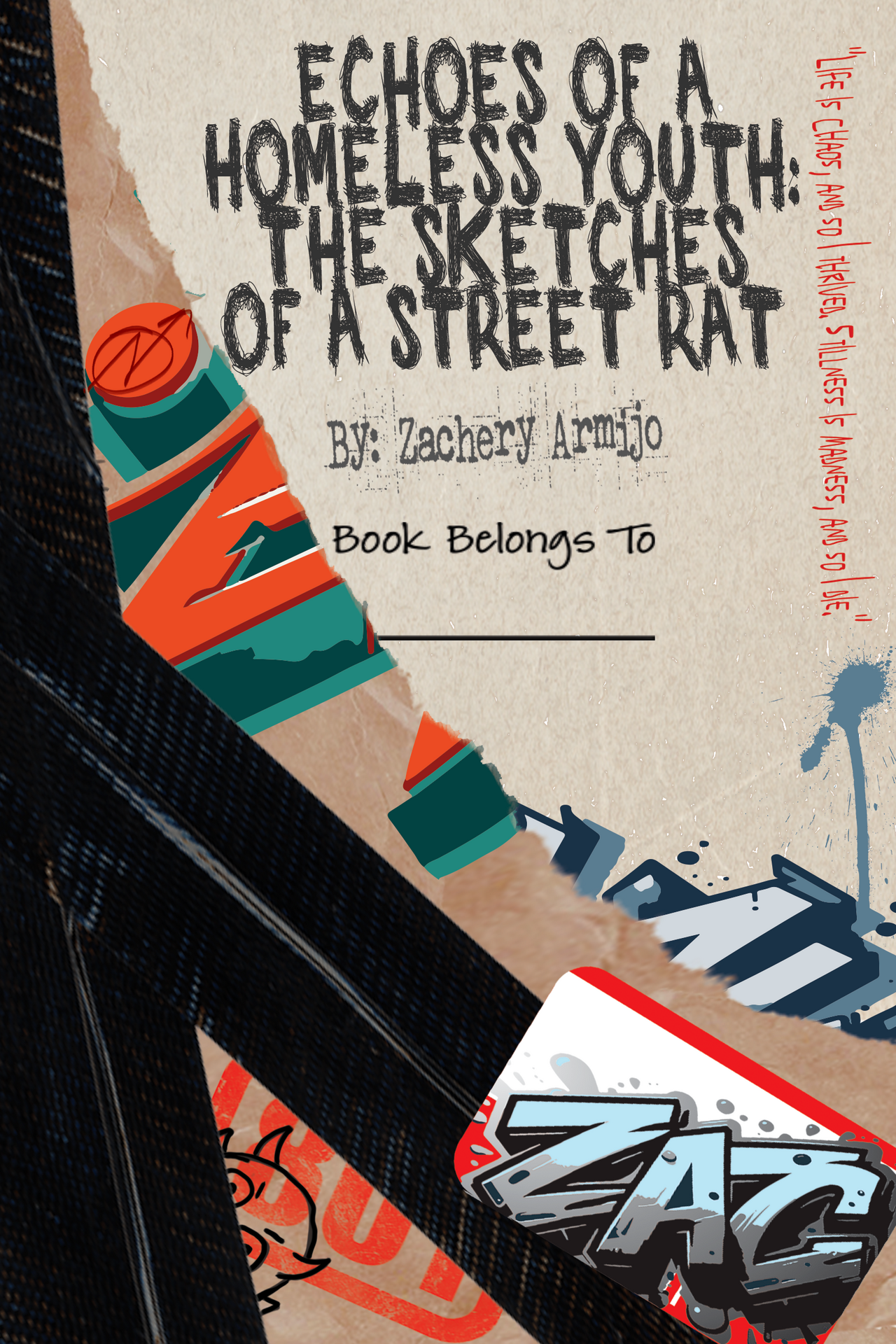
Coming Soon!
Echoes of a Homeless Youth: The Sketches of a Street Rat
What if survival isn’t just about enduring but about finding meaning in the chaos?Echoes of a Homeless Youth: The Sketches of a Street Rat is a raw, unfiltered journey into the life of Zachery Armijo—a young boy navigating the harsh realities of homelessness. Through fragmented memories, heartfelt sketches, and poignant reflections, this memoir captures the grit and resilience of a street kid searching for belonging. Zachery’s words pull no punches, exposing the pain, the struggle, and the unexpected beauty found in moments of connection.This is not just a story of survival; it’s a tribute to the power of hope, community, and the indomitable human spirit. Dive into a world that will break your heart and remind you of the strength it takes to keep moving forward.